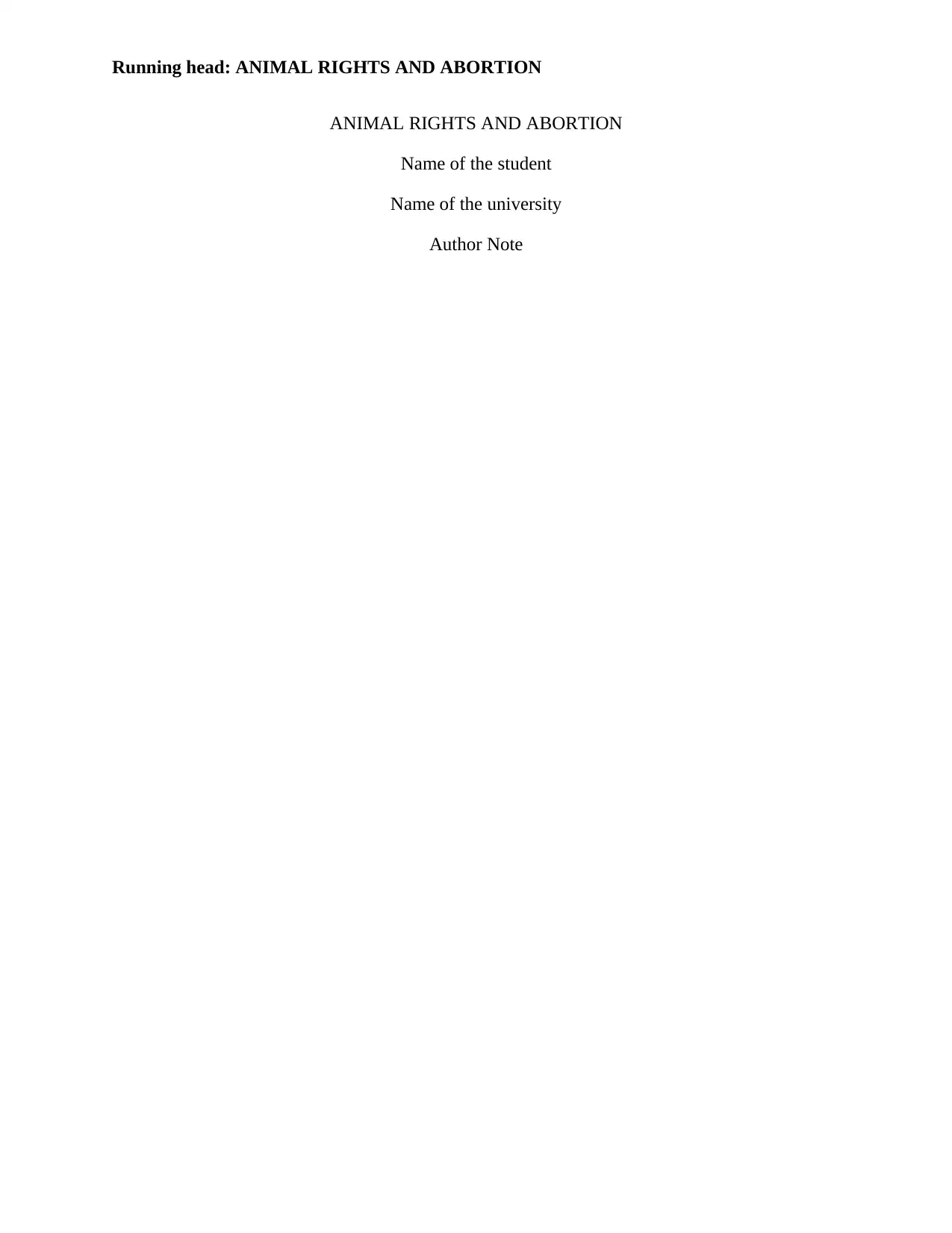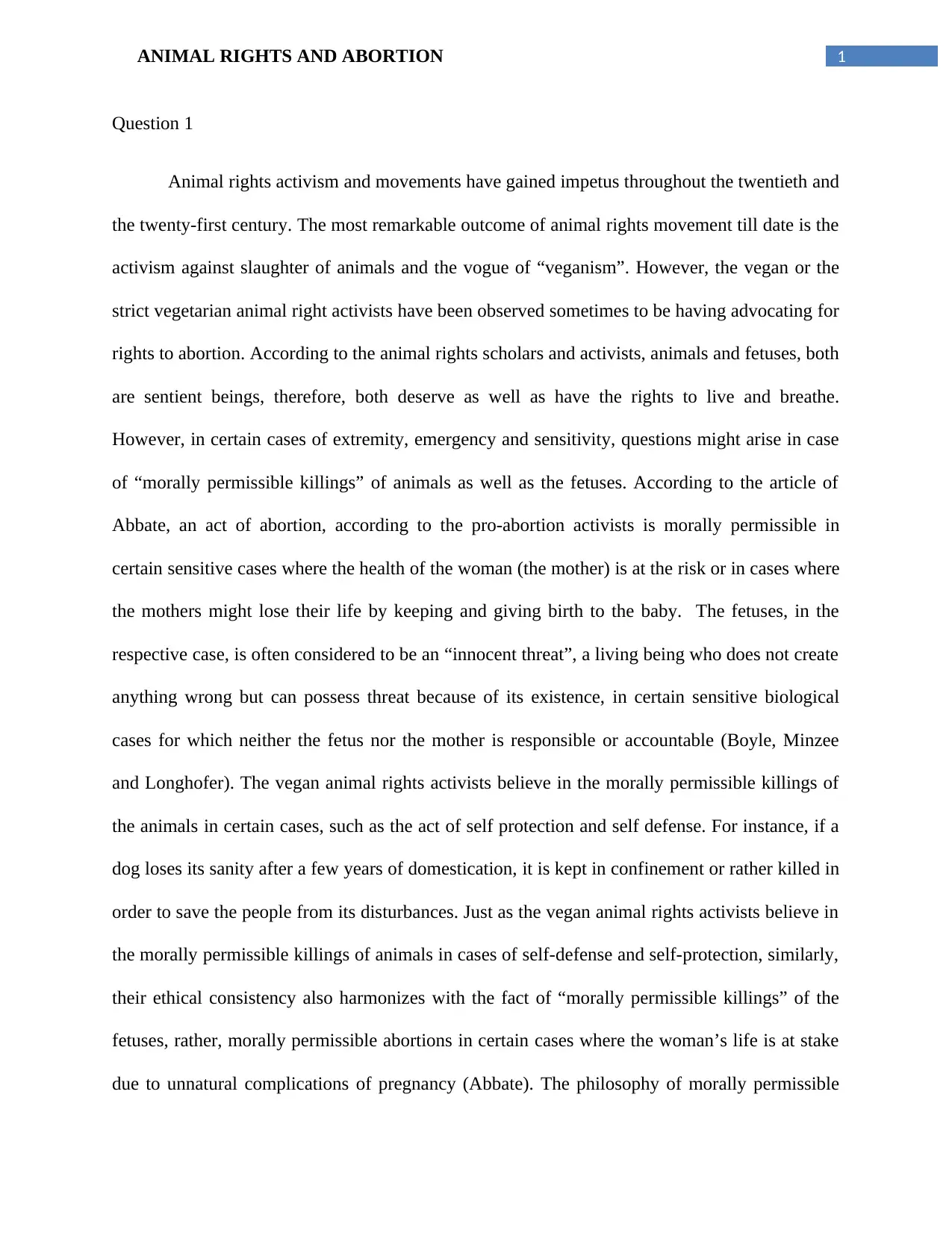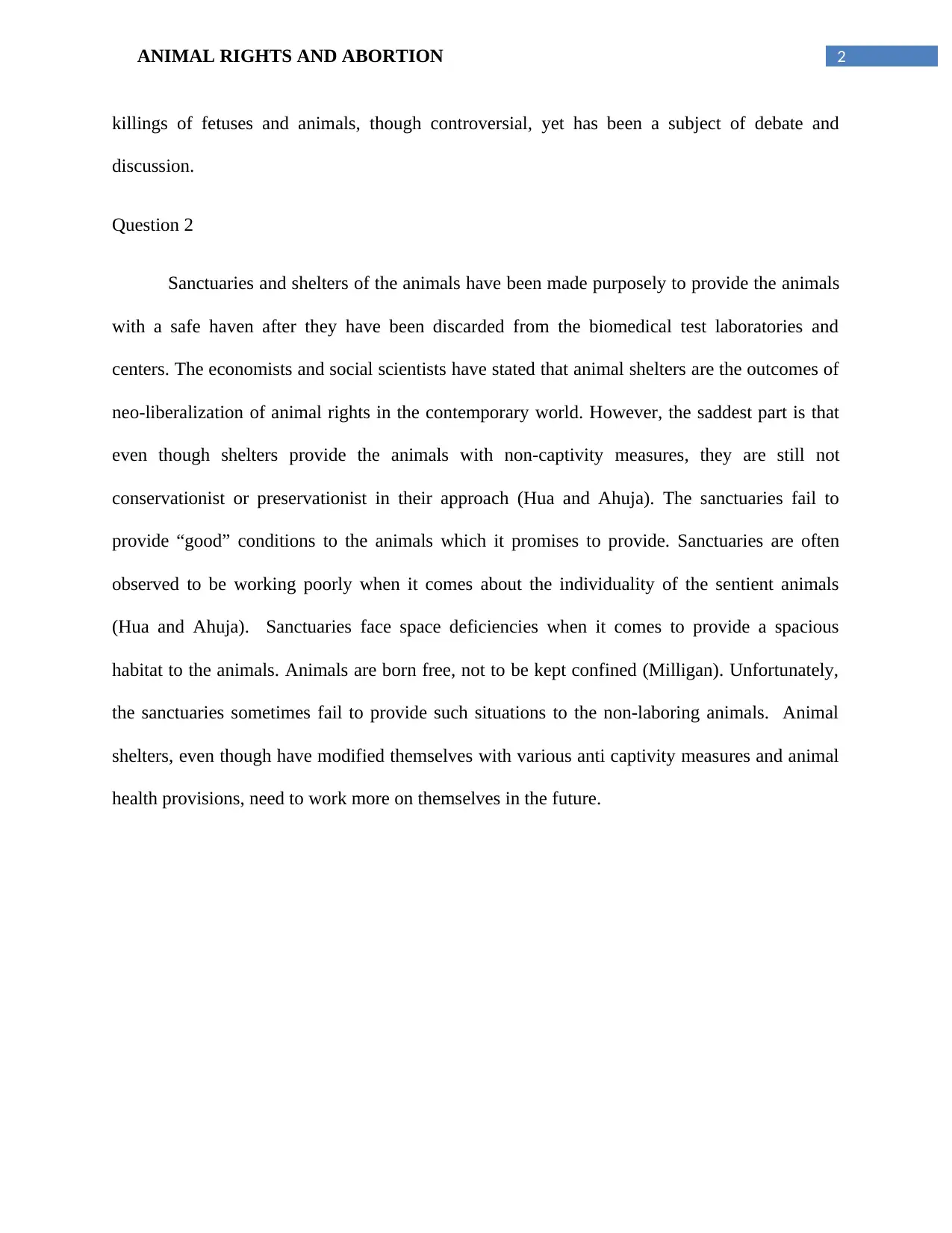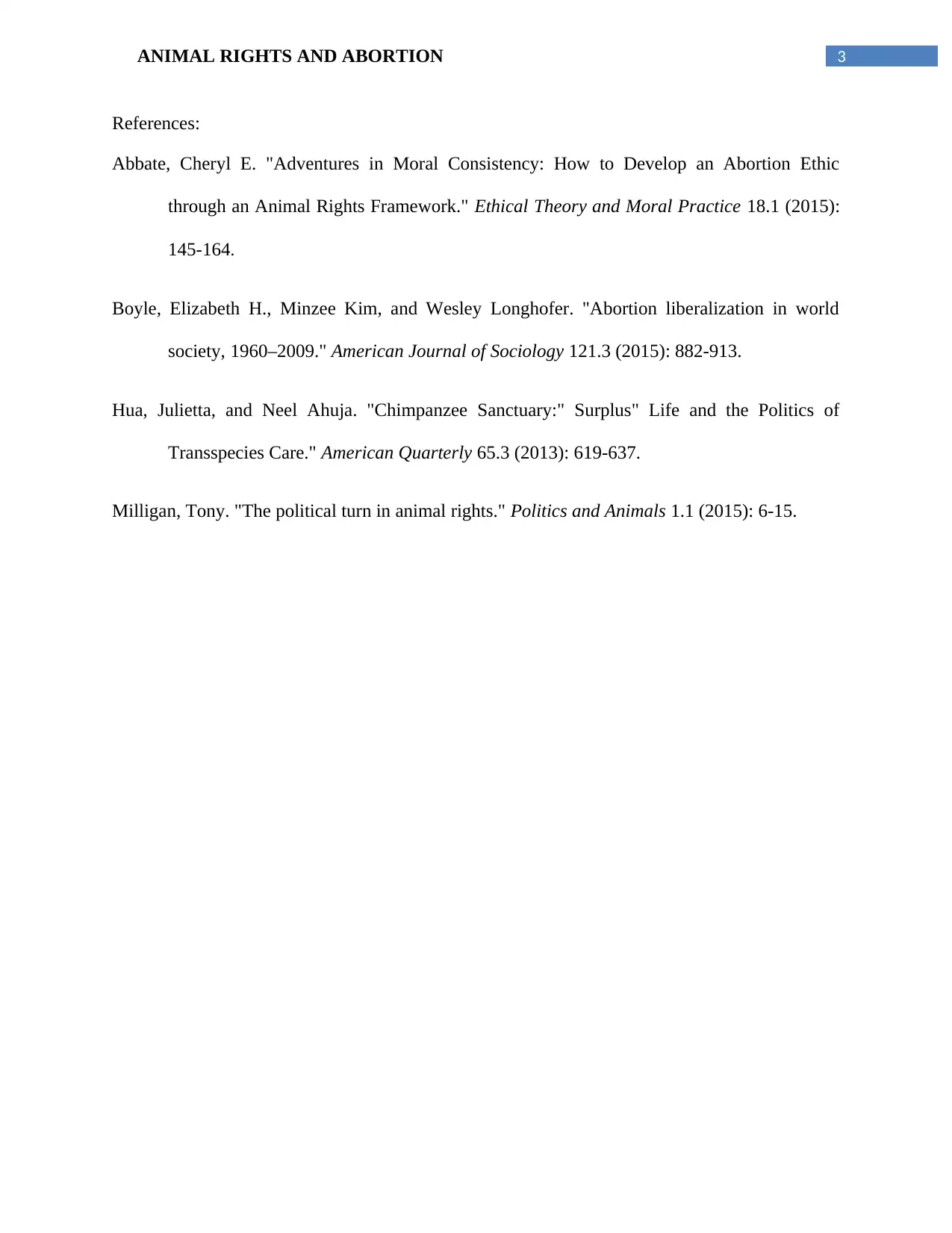An Exploration of Animal Rights, Abortion, and Moral Permissibility
VerifiedAdded on 2022/11/17
|4
|762
|169
Essay
AI Summary
This essay delves into the complex and often controversial intersection of animal rights and abortion, examining the arguments and ethical frameworks put forth by scholars and activists. The author explores the core tenets of the animal rights movement, focusing on the concept of sentient beings and the debate surrounding morally permissible killings. The essay draws parallels between the treatment of animals and fetuses, particularly in the context of veganism and pro-choice stances. It highlights the concept of morally permissible killings, especially in cases of self-defense, and the ethical consistency of these viewpoints. The essay also touches on the role of animal sanctuaries and shelters in the contemporary world, critiquing their effectiveness in providing suitable habitats and respecting the individuality of animals. References to articles by Abbate, Boyle, Hua, Milligan and others are included. The overall discussion centers on the philosophical debates and ethical considerations surrounding these sensitive topics, contributing to a deeper understanding of moral consistency and the challenges faced by animal rights activists.
1 out of 4







![[object Object]](/_next/static/media/star-bottom.7253800d.svg)